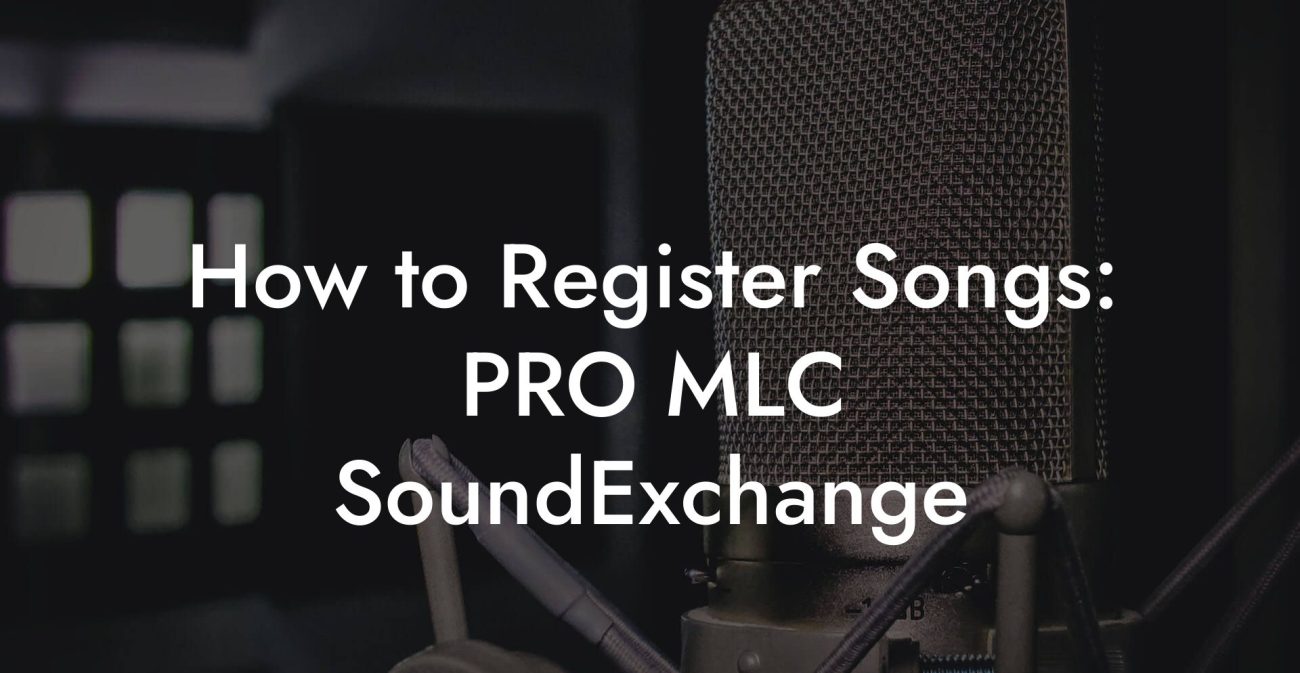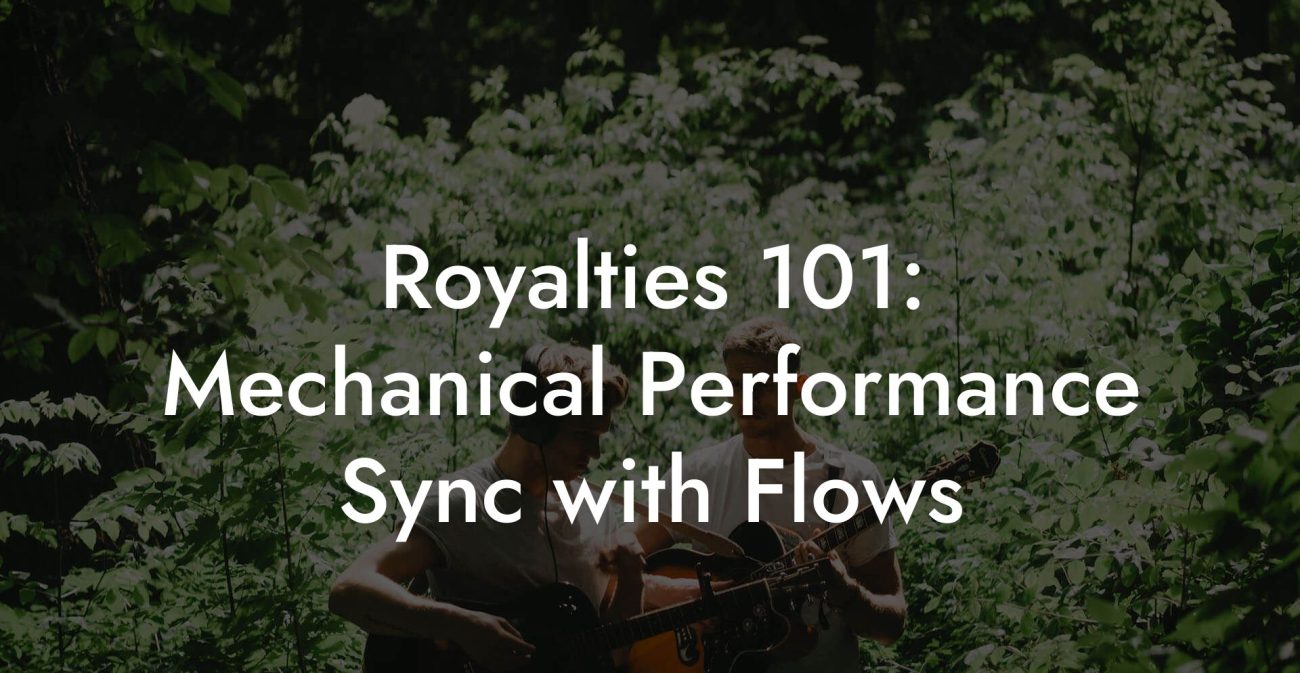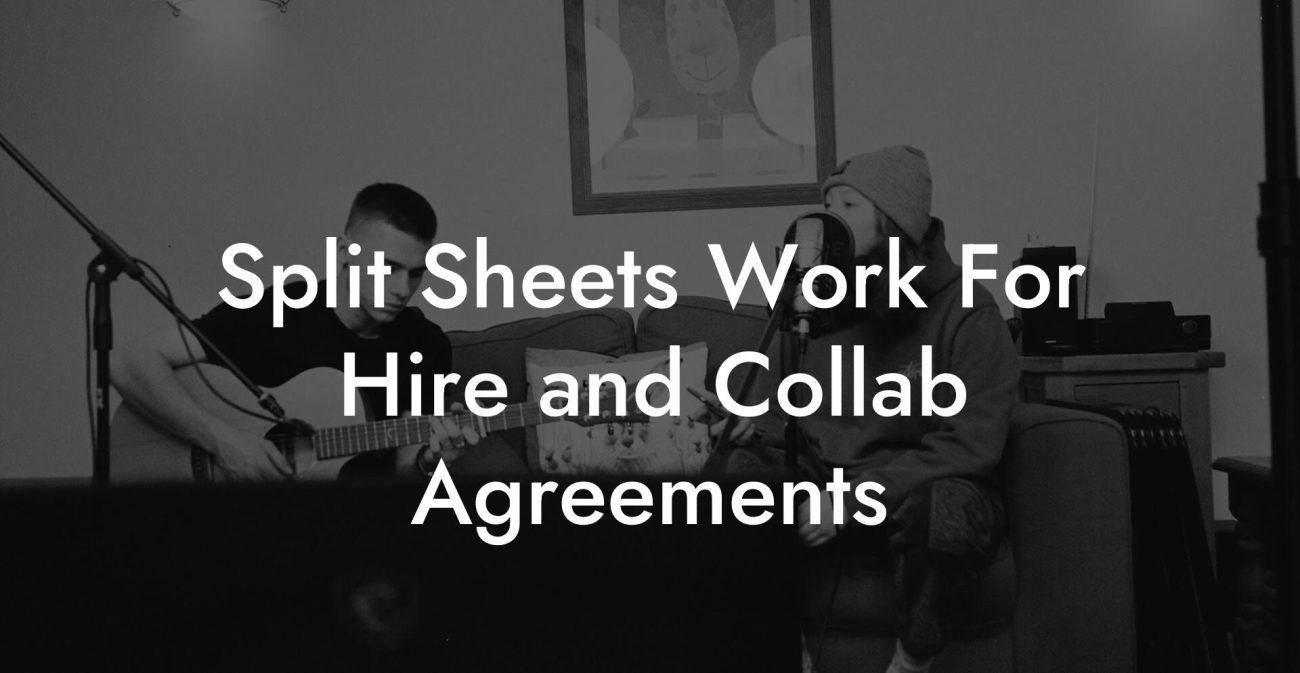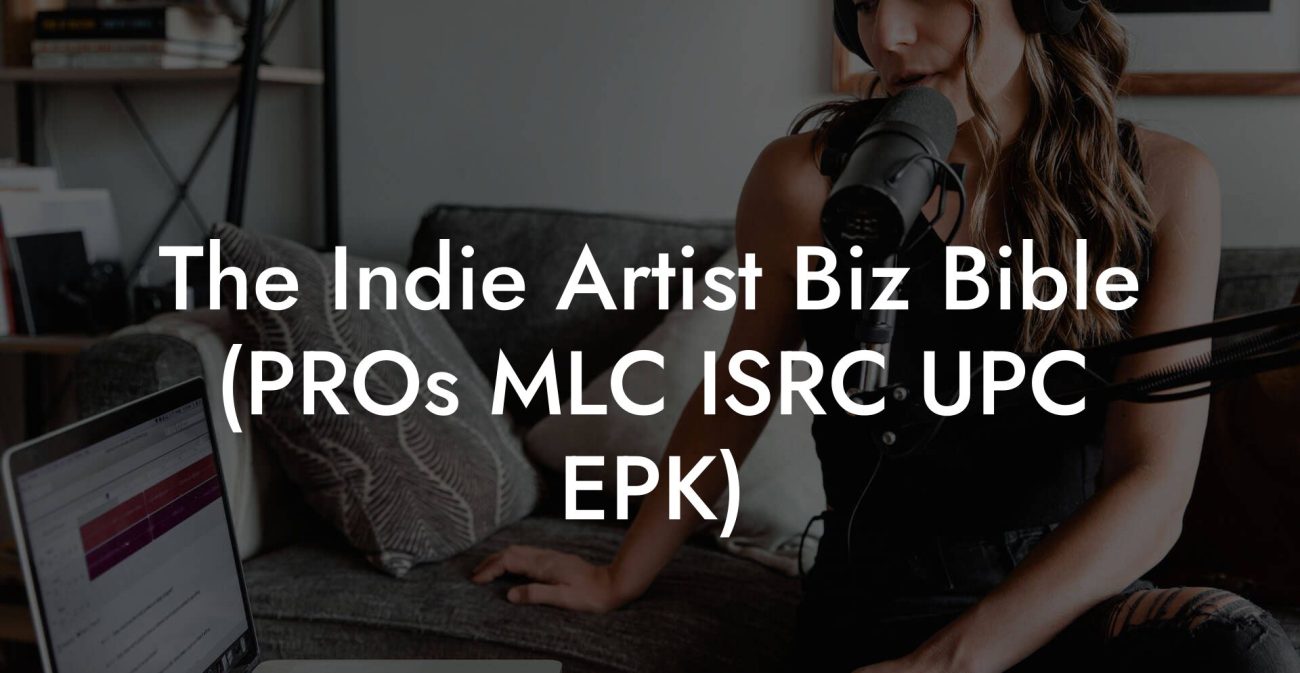Songwriting Advice
Publishing vs Master: Who Owns What and Who Gets Paid
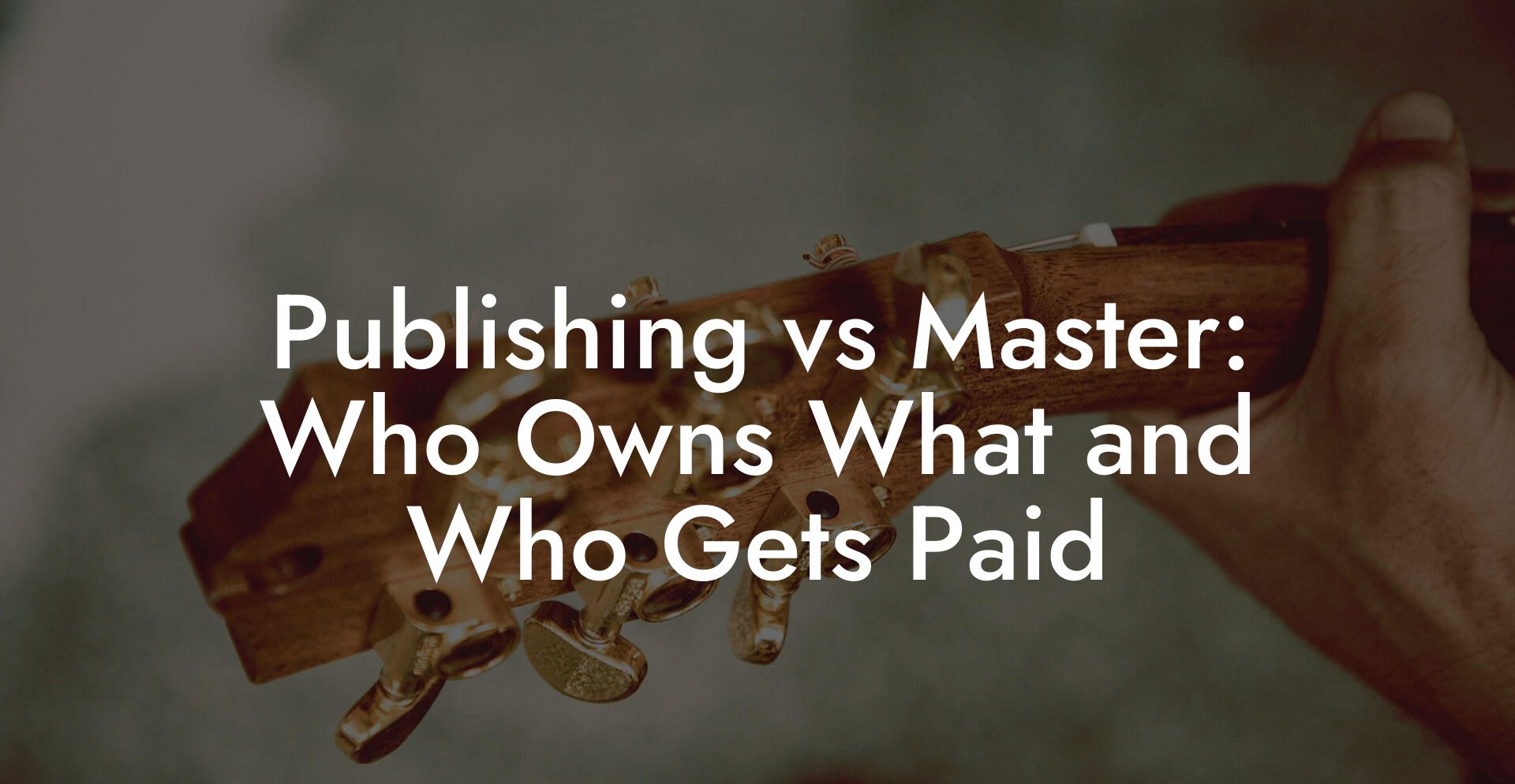
If you write songs and record them you are sitting on two separate gold mines and they are not the same mine. One mine is the song itself. The other mine is the recorded performance of that song. This article tells you who owns which mine, who gets paid when streams, placements, or covers happen, and how money actually flows with clear dollar examples. We will also cover real world scenarios like co writing splits, record deals, publishing deals, covers, and sync licenses for film and ads. Read this, register your songs, and stop letting people make bank off your work by accident.
Quick Interruption: Ever wondered how huge artists end up fighting for their own songs? The answer is in the fine print. Learn the lines that protect you. Own your masters. Keep royalties. Keep playing shows without moving back in with Mom. Find out more →
Quick Links to Useful Sections
- Basic Definitions You Must Know
- Why This Splits Musicians Up at Parties
- Who Owns What in Practical Terms
- Writing credits and publishing ownership
- Master ownership
- Income Streams and Who Gets Paid
- Real World Money Examples
- Scenario A: DIY artist who writes and records everything and owns both publishing and masters
- Scenario B: Artist signed to a label and signed a separate publishing deal
- Scenario C: Co writing situation with two writers and an independent label
- Sync Licensing Explained with Money Examples
- Cover Songs and Mechanical Licenses
- Administration and Publisher Fees
- Practical Steps You Must Take Right Now
- Negotiation Tips for Contracts
- How Splits Work in Common Situations
- One writer plus one producer who wrote topline but does not claim writing
- Song written by three people but one also owns the master
- Neighboring Rights Details
- Common Scams and Red Flags
- How to Make More Money From The Same Song
- Real Life Scenarios You Will Recognize
- The viral TikTok where the sample uses a famous master
- The songwriter who writes a future hit and signed a bad publishing split for an advance
- Checklist Before You Sign Anything
- FAQ
This guide is written for millennial and Gen Z musicians who want the receipts and the street sense. Expect blunt explanations, practical action steps, and awkwardly honest money math that you can show your accountant or the chaotic cousin who does your social posts.
Basic Definitions You Must Know
Before we tear into the numbers, get comfortable with these two core concepts.
- Composition or Publishing is the song as written. Lyrics, melody, chord progression, and the arrangement if that arrangement is part of the writer intent. Think of publishing as the recipe for the song. The people who wrote that recipe are writers. The person or company that represents the recipe for business reasons is the publisher. Publishing earns money when the song is performed publicly, reproduced, or licensed for visual media.
- Master or Recording is the actual audio file that you stream, play on the radio, or sell as a download. Think of the master as the prepared dish that the restaurant sells. The owner of the master collects money when that specific recorded performance is used. That owner is often a record label or the artist who self released.
Two separate rights. Two revenue pools. Two sets of paperwork. If someone asks to use your song in a movie they need two clearances and two separate payments. If they only want the recipe they still need the publishing license. If someone covers your song they pay publishing mechanicals. If they play your recorded performance they pay master royalties to the owner of the recording and performance royalties to the writers and publishers where applicable.
Why This Splits Musicians Up at Parties
Because a hit song can make the writer rich while a separate hit recording can make the performer rich. Sometimes the same person owns both. Often and historically these were split between publisher and label or between writer and performing artist who hired session players. The split creates arguments, lawsuits, and modern day business models where artists try to own both sides. Owning both sides is like owning the bakery and the recipe. You get paid when people read the recipe and when they buy the cake.
Who Owns What in Practical Terms
Writing credits and publishing ownership
Every song is divided into shares. Each writer gets a share that represents the writer share. Publishers control the publisher share. Standard practice in the music industry is to divide the song into two halves. One half is the writer share. The other half is the publisher share. If you write a song alone and you also own your own publishing company you control both halves. If you have a co writer you split the writer half between writers according to your agreed percentages. The publisher half gets split among the publishers who represent each writer.
Example language that is common in agreements is writer gets 50 percent and publisher gets 50 percent. That is not mystical. It is a standard way to describe the split between writer sums and publisher sums. Each writer still needs to register exact writer percentages with a performing rights organization so the money finds the right people.
Master ownership
The master is usually owned by whoever financed and released the recording. If a label pays for the recording the label often owns the master forever or for a long term. If you self finance your recording you usually own the master. Owning masters gives you control over how the recording is licensed and who collects money when that recording is used.
Income Streams and Who Gets Paid
Let us map the common income types and identify which side gets paid.
- Performance royalties are paid when the composition is publicly performed. This includes radio, TV, live venues, and interactive streaming in many territories. Performance royalties go to writers and publishers through performing rights organizations. These are ASCAP, BMI, SESAC in the United States and other collecting societies around the world.
- Mechanical royalties are paid when the composition is reproduced. This covers physical sales, downloads, and interactive streaming mechanicals. Mechanical royalties go to writers and publishers as well. In the United States interactive streaming mechanicals are routed through the Music License Collective, or MLC.
- Sync fees are paid for the right to synchronize the composition to visual media. There are two sync fees to negotiate. One is for publishing, or composition. The other is for using the master recording. You must clear both to use a recorded version in a TV show or commercial. Publishers and master owners can demand their own fees.
- Master royalties are paid to the owner of the master when the recording is streamed or sold as that recording. Streaming revenue allocated to the master owner is paid by the platform through the distributor and label system. The master owner then pays artist royalties if applicable under a record deal.
- Neighboring rights are payments for the use of the recorded performance in public broadcasts and certain international plays. Not available in all territories and collected differently internationally. If you are a recording artist and you do not own the master you might still be owed neighboring rights if local law recognizes performer payments. Labels often collect these and may pass them to artists based on agreement.
Real World Money Examples
Numbers are the only thing that makes claims real. These are simplified examples so you can follow the money. None of these numbers are universal truth. Contracts vary. Territory rules vary. Use the math to see who should be paid and why.
Scenario A: DIY artist who writes and records everything and owns both publishing and masters
Assume your song gets 1 million streams on Spotify and we use a conservative average payout of four thousand dollars from streaming to the rights holders. We will split revenue into master pool and publishing pool so you can see both sides. These pools are simplified for teaching purposes.
- Gross streaming money received for the master side: four thousand dollars
- Publishing related income for performance and mechanicals collected globally: one thousand dollars
Since you own the master you receive the full master revenue minus distributor fees. If the distributor charges ten percent you net three thousand six hundred dollars from the master pool. Since you also own the publishing you receive both the writer share and the publisher share. If the publisher takes an administration fee of fifteen percent from publishing income you net eight hundred fifty dollars after that fee.
So total money you take home from this campaign equals three thousand six hundred plus eight hundred fifty which equals four thousand four hundred fifty dollars. That is your cake and your recipe. You own the bakery and you own the book. You paid some fees for distribution and administration but you walked away with almost everything.
Scenario B: Artist signed to a label and signed a separate publishing deal
Same stream counts. Gross master revenue four thousand dollars. Publishing pool one thousand dollars. Now let us distribute according to typical simplified contracts. Labels often keep a large share of master revenue and pay artist royalties that vary between fifteen percent and twenty five percent of net receipts after certain deductions. We will use a fifteen percent artist royalty on master revenue. We will assume the publisher owns a fifty percent publisher share and the songwriter owns the writer share of fifty percent but the songwriter signed a co publishing deal where they keep twenty five percent of the publisher half and give the remainder to the publisher. The publisher charges a fifteen percent admin fee on what they administer.
Master side math
- Gross master revenue: four thousand dollars
- Label keeps eighty five percent as label share which equals three thousand four hundred dollars
- Artist royalty fifteen percent equals six hundred dollars
- If the artist has an advance the six hundred dollars could be recouped against that advance and not paid until recoupment clears
Publishing side math
- Total publishing pool: one thousand dollars
- Writer share fifty percent equals five hundred dollars which goes to the songwriter directly through their PRO or publisher depending on registration
- Publisher share fifty percent equals five hundred dollars
- Under a co publishing deal the songwriter keeps twenty five percent of the publisher half which equals one hundred twenty five dollars
- The publisher retains the remaining publisher share which equals three hundred seventy five dollars
- Publisher charges fifteen percent administration fee on the publisher income that they administer which might reduce what the publisher and songwriter see depending on how the deal is structured
So the songwriter ends up with writer share five hundred plus co publishing one hundred twenty five equals six hundred twenty five dollars from publishing pool. The label holds three thousand four hundred dollars on the master side and pays artist six hundred dollars which if recouped may not reach the artist. Net to the songwriter or artist in this scenario is six hundred twenty five plus possibly six hundred depending on recoupment. The label pockets a large part of the master money. The publisher pockets parts of the publisher half and charges fees. See the point. Owning both sides makes a huge difference.
Scenario C: Co writing situation with two writers and an independent label
Two writers split the song evenly. Writer A is the performer and owner of the master which they released through an independent label that keeps forty percent and pays artist royalties at twenty percent. Writer B is a songwriter with a small publishing administration agreement where the admin company takes ten percent. Streams equal one million and the same simplified pools apply with four thousand master and one thousand publishing.
Publishing split and payouts
- Writer share total fifty percent equals five hundred dollars. Each writer gets half of the writer share so each writer gets two hundred fifty dollars from the writer share. In many setups the performer writer still receives this payment but it goes to their publisher or PRO depending on registration.
- Publisher share fifty percent equals five hundred dollars. Each writer has a publisher. If they both own their publishing, the publisher half splits evenly and each publisher receives two hundred fifty dollars. If Writer B uses an admin service that takes ten percent that reduces their pocket.
Master side payouts
- Gross master pool four thousand dollars
- Independent label keeps forty percent which equals sixteen hundred dollars
- Remaining for royalties and costs two thousand four hundred dollars
- Artist royalty at twenty percent of the artist net might equal four hundred eighty dollars to the artist performer who also happens to be Writer A
- Neighboring rights and other splits are not included here and can change totals depending on territory
Net results
Writer A as performing artist receives the artist royalty and their share of publishing. Writer B receives only publishing shares. If Writer B used an admin they lose a percentage to the admin company. The performer who owns the master benefits from additional income streams that only masters can generate such as direct licensing to playlists or master sync licensing without involving other owners.
Sync Licensing Explained with Money Examples
A sync placement is one of the fastest ways to make a meaningful payment. Sync licensing always involves two permissions. One for the composition and one for the master recording. Both can be owned by the same person or by different entities. They are negotiated separately.
Example: A brand wants to use your recorded performance in a national commercial and offers ten thousand dollars for the master license and five thousand dollars for the sync license for the composition.
- If you own both the master and the publishing you receive the entire fifteen thousand dollars subject to any splits if you co wrote the song with someone else
- If a label owns your master and they demand eight thousand dollars of the master fee and pay you twenty percent royalty you would get one thousand six hundred dollars from the master fee unless recouped
- If a publisher owns the publisher share they might keep a portion of the sync fee depending on the deal. A typical co publishing split leaves the writer with some percentage of the publisher half and the publisher with the rest
Remember that each co writer needs to sign off on the sync license for the composition. If you have multiple writers and one refuses the license cannot be granted unless there is a separate agreement giving control to one publisher. That is why clear publishing ownership and administration matters in sync deals.
Cover Songs and Mechanical Licenses
If someone records a cover of your song they must secure a mechanical license to reproduce the composition. In the United States compulsory mechanical licenses allow covers to be recorded after the original has been released. For streaming platforms interactive streaming mechanicals are collected by the MLC. The mechanicals go to the writers and publishers. The cover artist does not need your permission for the composition if they follow the statutory process. They do need permission to use your master if they want to use your recorded performance.
Example
- A popular singer covers your song and their cover gets one million streams. Mechanical royalties from downloads and streaming accruals might total one thousand dollars for the composition and are paid to the writers and publishers according to splits
- If you own the publishing you receive the full mechanical royalty instead of splitting it with a publisher
- The cover artist keeps the master income since they own the new master they recorded unless they used your original master which would require a license to you
Administration and Publisher Fees
Publishers and admin companies do real work. They register songs with PROs and mechanical societies, collect money globally, chase unpaid royalties, and pitch songs for sync. In return they charge a fee. Administration deals commonly take between ten and twenty percent of publishing income. Co publishing deals where the publisher takes a share of the publisher half reduce writer income but can improve opportunities or advance money upfront. Understand what you are signing and model the long term money before you give away publisher share for a short lived advance.
Practical Steps You Must Take Right Now
If you want to stop losing money do these things this week. They are free or low cost and they actually work.
- Register your songs with a performing rights organization right now. ASCAP, BMI, or SESAC in the US. This ensures performance royalties get tracked and paid.
- Register your songs with the Music Licensing Collective if you are in the US or make sure your publisher registers mechanical information for global collection.
- Use split sheets for every session. Even if you are best friends. Have everyone sign a simple written agreement that states ownership percentages for composition and for any contribution to the recording.
- Keep clear metadata on your masters. Tag every file with artist name, songwriter credits, ISRC codes, and publisher names. Bad metadata means lost money.
- If you work with a label or publisher read the recoupment clauses. Advances are not free money. Know what you owe and how the label deducts costs from your royalties.
- Consider owning your publishing if you can. If you cannot run admin yourself use a reputable admin company that takes a transparent fee and does a good job collecting internationally.
Negotiation Tips for Contracts
When you are signing a record deal or a publishing deal here are the points that matter more than ego.
- Ownership reversion. Ask for a clause that returns masters to you after a set period or after recoupment. Forever ownership by a label can be costly if the recording becomes valuable long term.
- Split clarity. Make sure splits are defined in a separate document and registered with PROs. Disputes kill payouts.
- Admin transparency. For publishing administration get a clear admin fee and audit rights. You should be able to see statements and get paid within a reasonable time frame.
- Artist royalty base. Know whether royalties are calculated on net receipts or on suggested retail. Net receipts can be reduced by deductions.
- Sync consent. Keep some say over major syncs if possible. A great sync can define a brand. Losing creative control can mean a bad brand association.
How Splits Work in Common Situations
One writer plus one producer who wrote topline but does not claim writing
Always determine whether a producer contributed to melody or lyrics. If they did they are a writer. If they only arranged instrumentation and sound textures they might not be a writer. Respect to producers who earn writing credits is fair and common. If you are giving a producer a producer fee only you keep the publishing. If you give them a writing split this translates directly to publishing income over time and can be huge if the song succeeds.
Song written by three people but one also owns the master
Writing percentages apply only to publishing. Owning the master gives a separate revenue path that sits outside publishing. If one writer owns the master and the others do not, the master income flows to the master owner while publishing income flows to the writers according to their splits. This creates common tension when a song becomes huge in streaming. Communicate early.
Neighboring Rights Details
Neighboring rights pay performers and master owners for public broadcasts in many countries. In the United States terrestrial radio does not pay performers for sound recordings. Other countries such as those in the European Union do. Performers can earn neighboring rights through collecting societies in those countries. If you do not own the master you might still collect neighboring rights directly as a performer if the law in that territory recognizes performer payments and you register with the appropriate collection society. This is an extra money stream that many artists ignore until it is too late.
Common Scams and Red Flags
- Publisher asks for full publishing for little more than registration. If someone wants your publisher half for no obvious service ask for specifics in writing and a list of placements they can prove.
- Label insists on 360 deals that take publishing, touring, and merchandising percentages. These can be useful in some cases but must be negotiated carefully. Avoid blanket transfers without strong compensation.
- Admin companies that refuse audits or have opaque reporting. If you cannot see how much money they collected you cannot verify what you are owed.
- Unclear split agreements after co writing sessions. No split sheet equals default fight and default loses money.
How to Make More Money From The Same Song
Owning two sides helps but you can also increase income by being smart about licensing and versions.
- License instrumentals separately for podcasts and videos. Some buyers want instrumental only and will pay a fraction of sync fees that add up.
- Offer stems for remixers and charge a license fee for remixes that will keep your publishing intact while creating fresh master income.
- Create an acoustic master you own if the label owns the original master and you can negotiate a separate recording. That gives you another master to license.
- Pitch your song aggressively for pitch playlists, TV editors, and ad agencies. Sync deals pay more per placement than streaming unless you get massive scale.
Real Life Scenarios You Will Recognize
The viral TikTok where the sample uses a famous master
If someone uses your recorded performance the platform and the user do not need permission for short clips under certain fair use exceptions but most platforms have deals with rightsholders. The master owner and the publisher get matched by content ID systems and are paid accordingly. If your song goes viral but you do not own your master your label could be the one cashing in while you wait for royalty statements. If you own the master you directly collect from aggregators and content ID platforms.
The songwriter who writes a future hit and signed a bad publishing split for an advance
An advance can feel like free money but remember it is not free. A publisher fronting money will expect a share of future income or even full control. If a song becomes a hit you could have given away decades of revenue for a small upfront check. Always model the long term value and push for reversion clauses that give you rights back after a set time or revenue threshold.
Checklist Before You Sign Anything
- Do you understand exactly what you are granting. Ownership transfer must be explicit.
- Can you quantify long term earnings lost if you give up publisher share or master ownership.
- Is there a reversion clause for masters or publishing after a period.
- Do you have split sheets for all co writers and contributors to the master recording.
- Is the admin fee reasonable and are audit rights included in the contract.
FAQ
What is the difference between the writer share and the publisher share
Think of writer share as the income that flows directly to the people who wrote the song. Publisher share is the income due to whoever controls the song for licensing and collecting reasons. Together they make the publishing pie. Splits are registered with performing rights organizations so money flows to the correct parties.
Can I own both the publishing and the master
Yes. If you write your song and self release your recordings and handle your own administration you can own both. Owning both is powerful because you collect money from both streams. Many artists aim for ownership of both. It requires responsibility for registering and collecting royalties properly.
Do I need a publisher to collect royalties around the world
Not strictly. You can self administer but international collection can be messy. Many writers use an administration company that knows how to collect in small territories and will charge a fee for the service. If you have many co writers this becomes even more important to avoid lost income.
What gets paid when my song is used in a TV show
You normally receive performance royalties for the composition from your PRO and a synchronization fee if the publisher negotiates one. If the show uses your recorded version the master owner receives a separate payment for use of the master. Both payments are negotiated and paid independently.
Who gets paid when someone streams my song on Spotify
Streaming generates money that is split between master and publishing streams. The master owner gets payments calculated through labels and distributors. Writers and publishers get mechanical and performance related payments through the MLC and PROs. The platforms route money into those pools and it gets distributed according to registered ownership splits.
How do I register who owns what so I get paid
Register with a performing rights organization for performance royalties. Register compositions with the MLC for mechanicals in the US. Put exact writer percentages into your PRO account and into any publisher account. For masters register ISRC codes and register releases with your distributor. Keep metadata tidy and complete.

